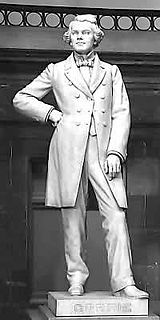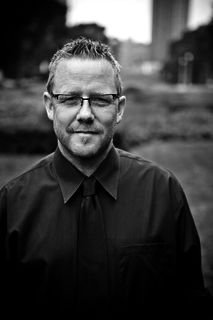A Quote by David Brin
For all its beauty, honesty, and effectiveness at improving the human condition, science demands a terrible price - that we accept what experiments tell us about the universe, whether we like it or not. It's about consensus and teamwork and respectful critical argument, working with, and through, natural law. It requires that we utter, frequently, those hateful words - 'I might be wrong.'
Quote Topics
About
Accept
Argument
Beauty
Condition
Consensus
Critical
Demands
Effectiveness
Experiments
Frequently
Hateful
Honesty
Human
Human Condition
Improving
Law
Like
Might
Natural
Natural Law
Price
Requires
Respectful
Science
Teamwork
Tell
Terrible
Those
Through
Universe
Us
Utter
Whether
Words
Working
Wrong
Related Quotes
The price of these failures has been a loss of moral consensus, a greater sense of helplessness about the human condition. ... The intellectual solution to the first dilemma can be achieved by a deeper and more courageous examination of human nature that combines the findings of biology with those of the social sciences.
The Law requires much, but offers no help in the carrying out of its requirements. The Lord Jesus requires just as much, yea even more (Matt. 5:21-48), but what he requires from us he himself carries out in us. The law makes demands and leaves us helpless to fulfill them; Christ makes demands, but he himself fulfills in us the very demands he makes.
The wonderful structure of the animal system will probably never permit us to look upon it as a merely physical apparatus, yet the demands of science require that the evidently magnified principles of vitality should be reduced to their natural spheres, or if truth requires, wholly subverted in favor of those more cognizable by the human understanding. The spirit of the age will not tolerate in the devotee of science a quiet indifference.
But in many orders of beauty, particularly those of the finer arts, it is requisite to employ much reasoning, in order to feel the proper sentiment; and a false relish may frequently be corrected by argument and reflection. There are just grounds to conclude, that moral beauty partakes of this latter species, and demands the assistance of our intellectual faculties, in order to give it a suitable influence on the human mind.
The work of science has nothing whatever to do with consensus. Consensus is the business of politics. Science, on the contrary, requires only one investigator who happens to be right, which means that he or she has results that are verifiable by reference to the real world. In science consensus is irrelevant. What is relevant is reproducible results. The greatest scientists in history are great precisely because they broke with the consensus.
One of the ways of stopping science would be only to do experiments in the region where you know the law. But experimenters search most diligently, and with the greatest effort, in exactly those places where it seems most likely that we can prove our theories wrong. In other words, we are trying to prove ourselves wrong as quickly as possible, because only in that way can we find progress.
Nature is purposeless. Nature simply is. We may find nature beautiful or terrible, but those feelings are human constructions. Such utter and complete mindlessness is hard for us to accept. We feel such a strong connection to nature. But the relationship between nature and us is one-sided. There is no reciprocity. There is no mind on the other side of the wall.


































